On Advertisements and Persuasion. See What Happens Behind the Scenes.
Let's go through 10 different ads from different companies to find out the fundamentals.
It has been more than 30 years since Nike first used the Just Do It slogan.
Lines like Just Do It or Think Different or I’m lovin’ it is nothing if they’re not associated with a brand.
It has almost become synonymous with the brand itself.
In today’s issue of Be Curious, let's analyse some popular brands’ advertisement copies and try to understand how they use the basics of persuasion to make you buy their products/services.
In case you haven’t read the previous issue of this series, I highly recommend you do so. You will learn a lot of new things.
Heavy on Data
Do you think mentioning more facts and figures increases your likelihood of buying a product?
Or trusting a company more, so the next time you want that product, you’ll go straight to that company and give them preference?
Hell yes! See these advertisements. Saw something in common?
If you look closely, you’ll observe that both mainly focus on data to convince you that their product is the best.
Apple especially, has mastered this approach. They combine a killing hook with data and design and we all go gaga over it.
If you remember, we discussed this type of persuasion in the previous issue. It’s a form of Logos or persuasion by logic or fact and figures.
They show you all they have to offer and leave the decision of deciding if their product is the best.
And because I mentioned Apple, here you can see another example. By the way, their website is full of examples.
Now let’s move to the next category.
We Make Your Trust Count
Though it’s a pot of gold for every company, it’s a necessity for some.
Can you think of some companies for whom your trust is a necessity? It’s financial institutions or fin-tech companies.
You can trust XYZ companies with your morning cereal or trousers, but you won’t trust them with your money. Hence, you’ll see a lot of fin-tech companies, if not all, advertising about:
how secure they are
how credible they are
and you can trust them with your money.
Look at some copies below:
American Express went one step further and even trademarked the phrase “The Powerful Backing.”
And the only words in MasterCard’s copy are “For a rainy day.”
Noticed how they are putting the trust factor to the forefront, and want you to think of them as credible?
This is a good application of the persuasion practice of Ethos or persuading by leveraging character and/or credibility.
Just feel good and give us the money
aka the companies that persuade you by playing with your emotions. Not quite literally.
Making an emotional connect with you is their prime focus. Because their product is not so special and the only thing their product sells on is their brand.
A popular example:
How do you taste feelings?
You should better gift ”your feelings” to your crushes. Maybe then they will start to pay you attention.
The thing they are doing behind the scenes is persuading you by leveraging emotions. This way of persuasion is called Pathos.
They want you to feel in a certain way. In the case of Coca-Cola, they want you to feel joyful.
The cover of this article has an ad copy of Nike? They also use this same strategy. They want to instill in you the feeling of sportsmanship. They want you to feel enthusiastic.
We associate Nike and ”Just Do It” with achieving the impossible. A feeling of winning.
Have you noticed this form of persuasion anywhere else?
A good example would be luxury goods. Just look at the ad copies:
There’s little to nothing about the product.
It’s all about ”how you will feel after owning it.”
They sell emotions, more than the products. That’s how they are able to charge you that premium price.
Now that you know about the persuasion technique used in the advertisement, here’s an excercise for you.
Can you tell what persuasion tactics are used in this ad copy?
It’s even better if you are able to point out more than one.
And then there are these types of exceptions that have no explanation other than creativity. Well done Pepsi!
I hope you enjoyed this issue of Be Curious. Thanks for reading!
Let me know more by answering this poll, commenting on the post, or by simply replying to the email. I am all ears. Bye!

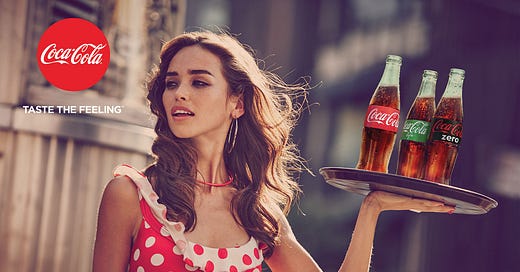


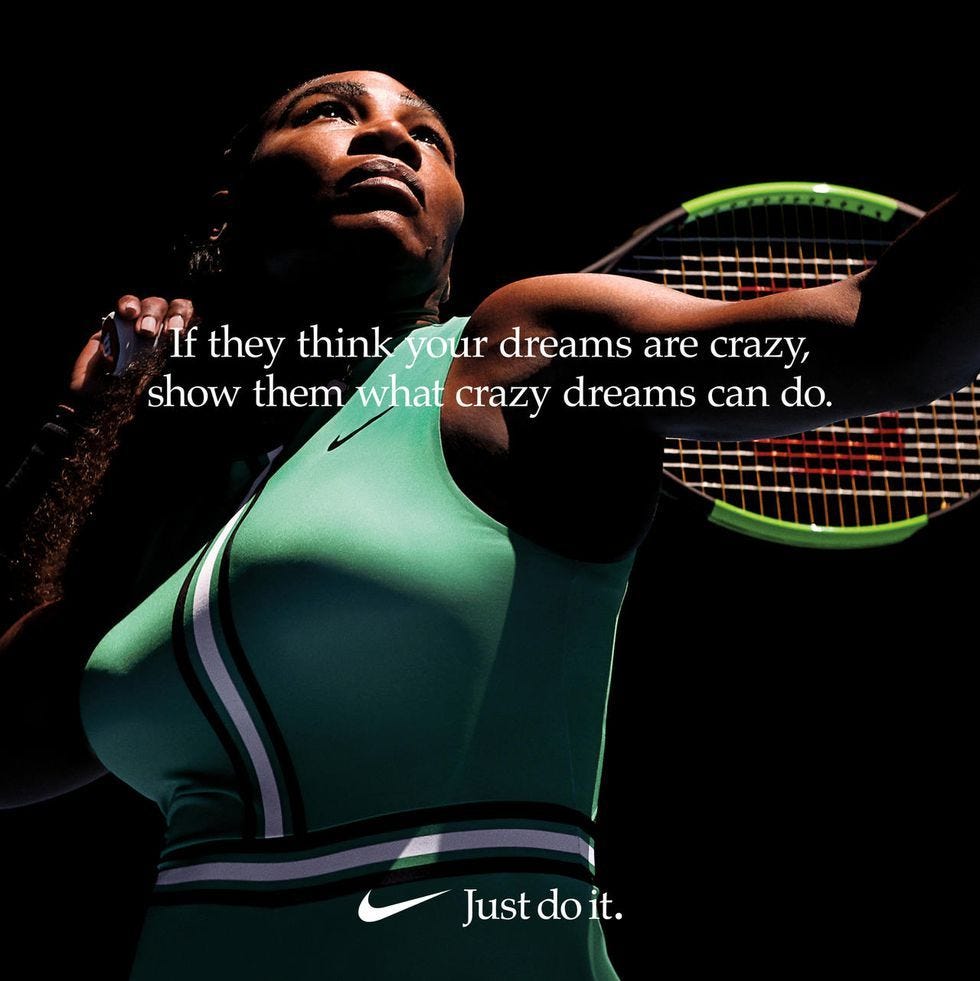


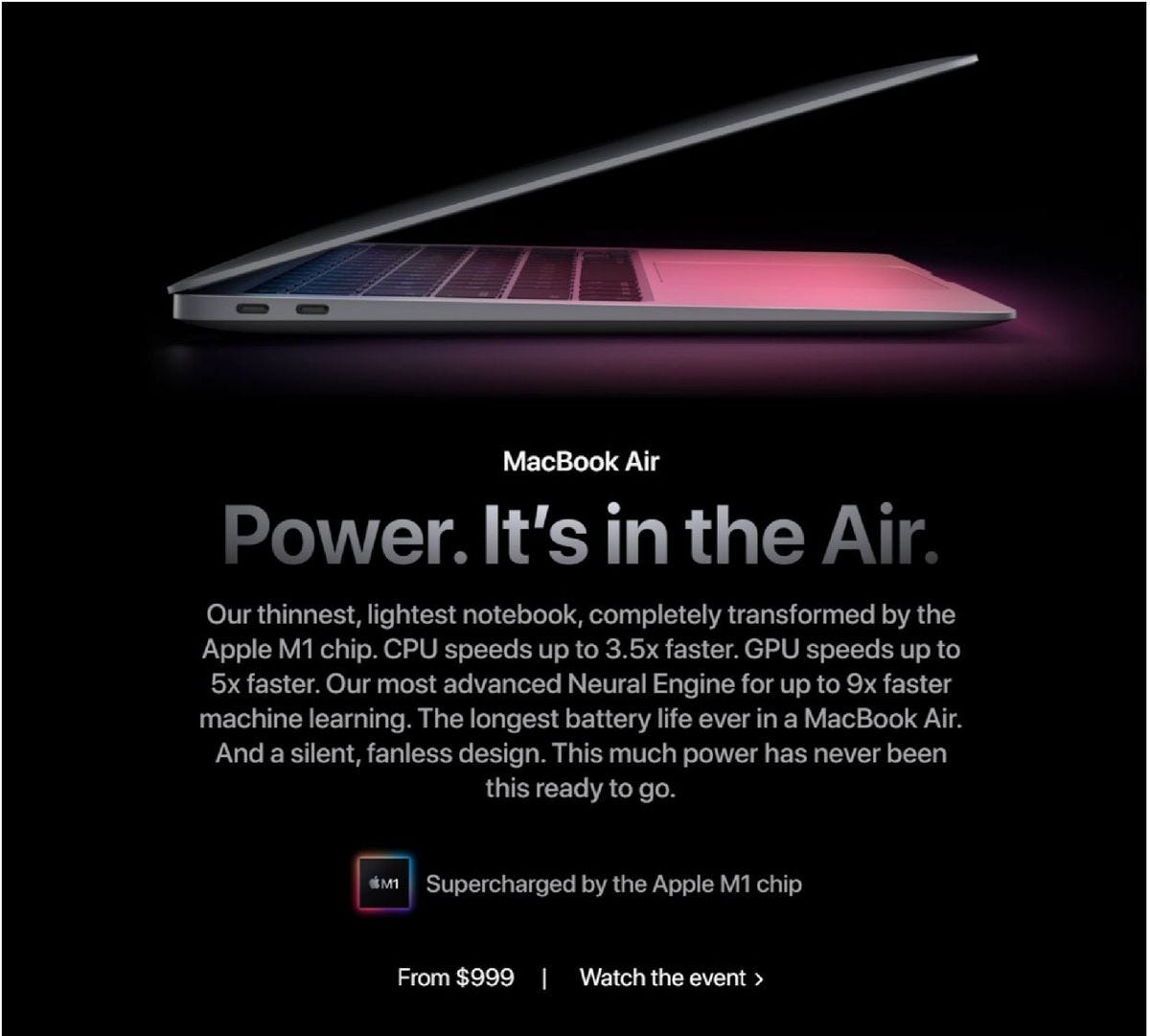
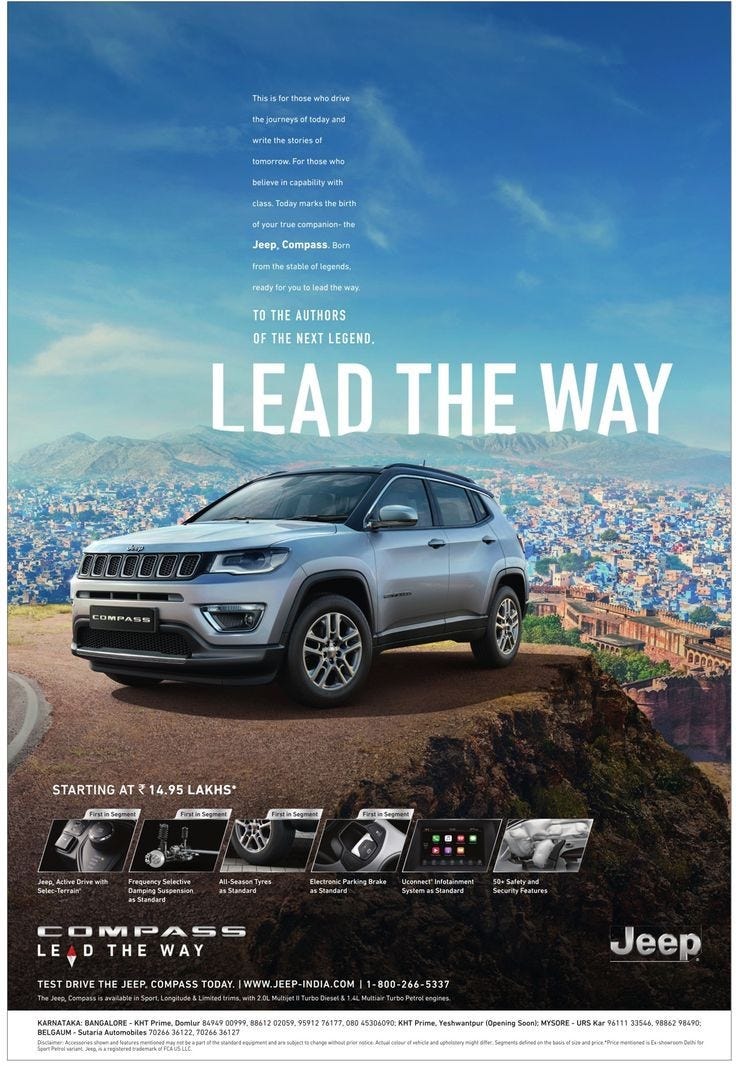
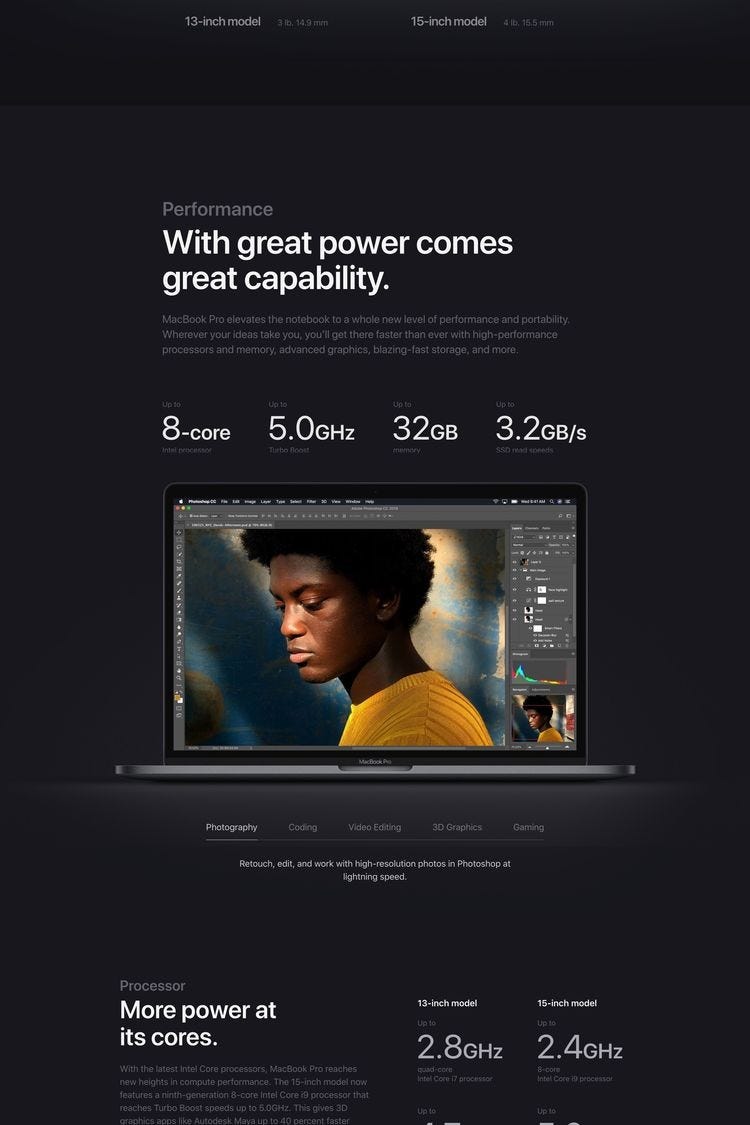

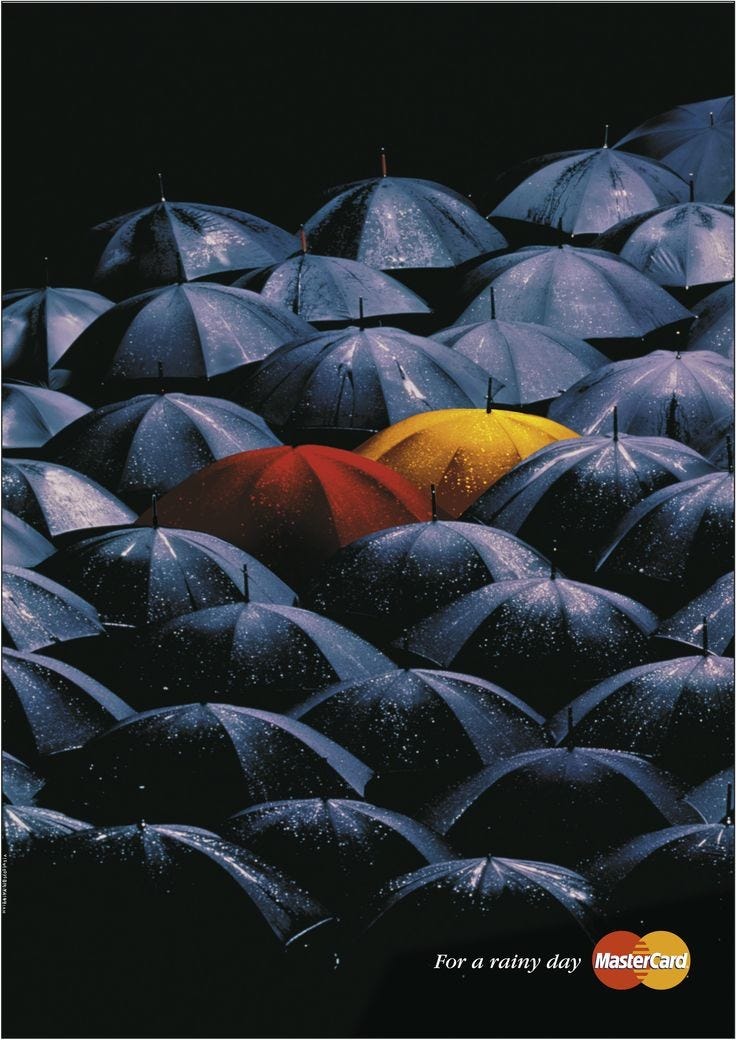
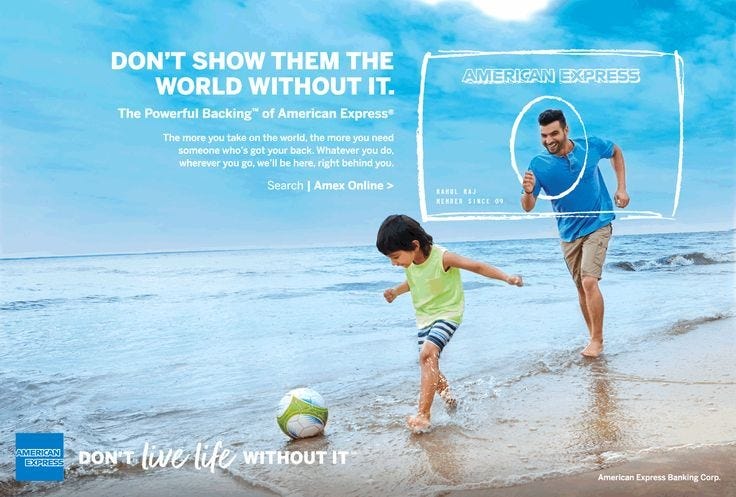



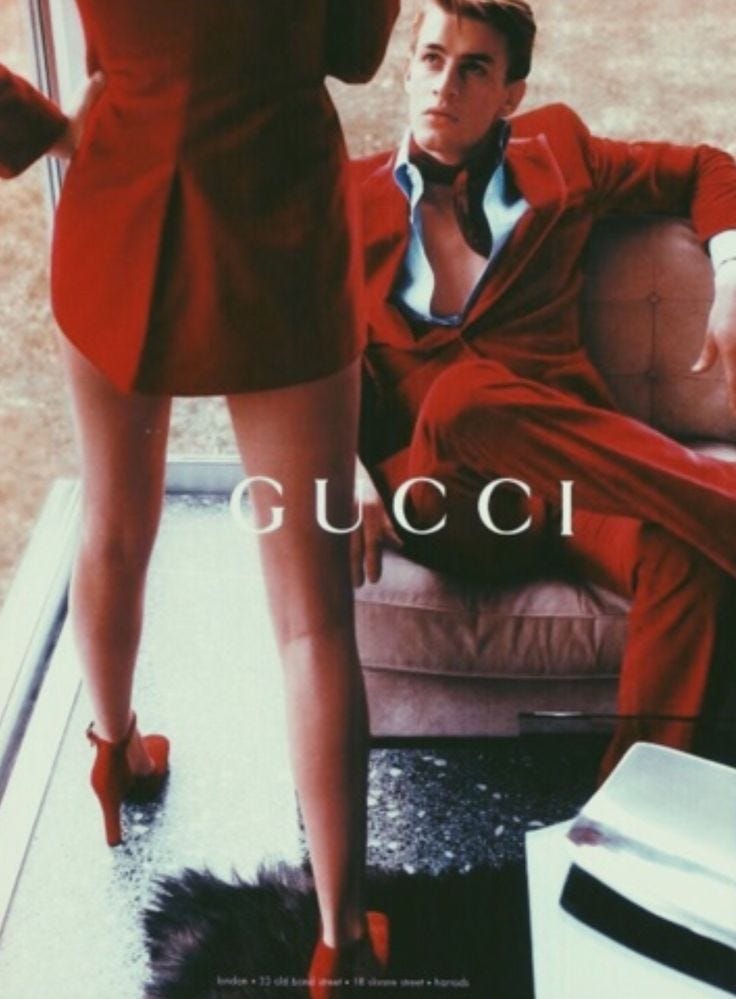

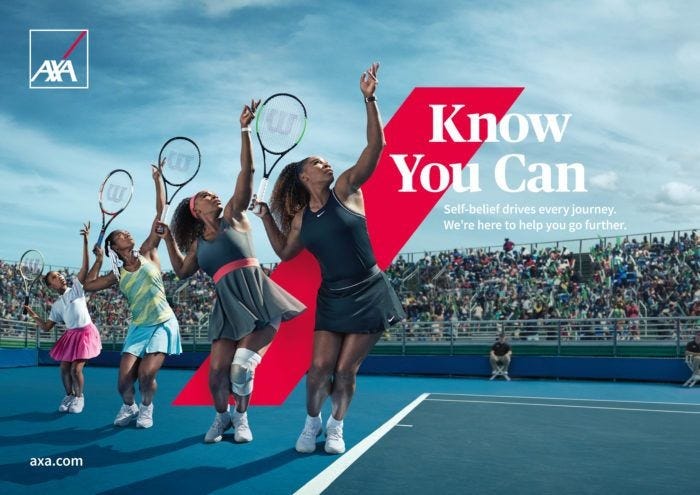

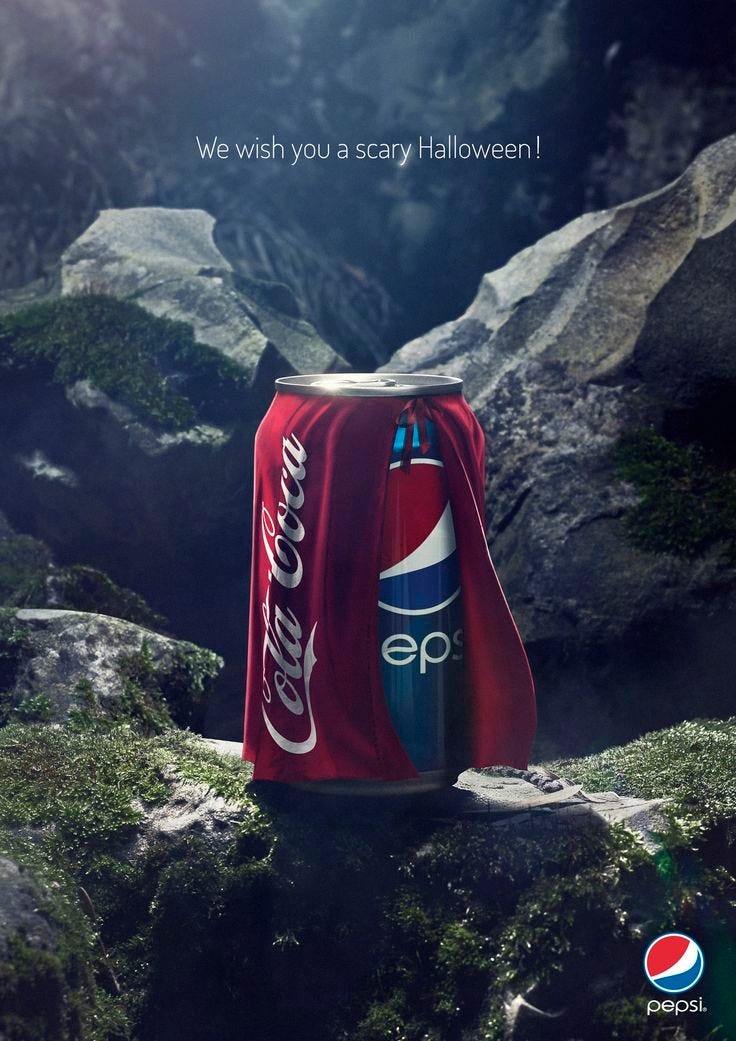
Great analysis here!!